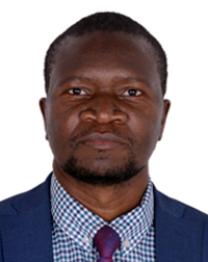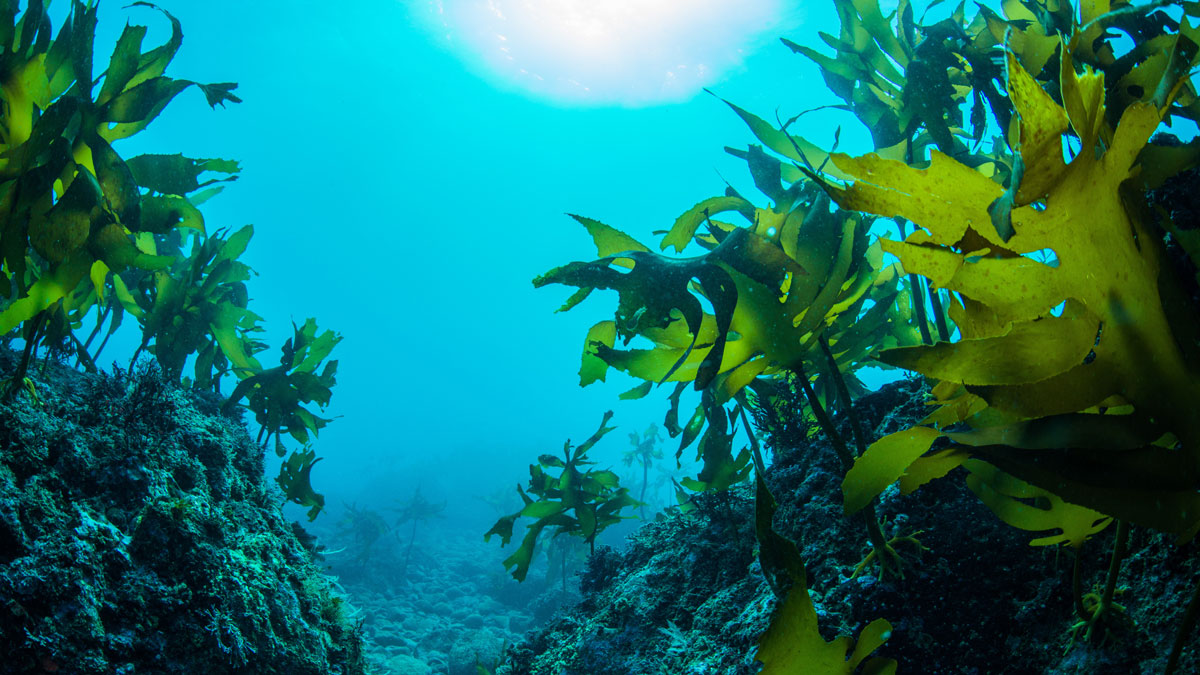
UN Trade and Development (UNCTAD), Global Seaweed Coalition, World Bank, Aquatic Blue Food Coalition, and the UN Global Compact organized a side event on 10 July at the High-Level Political Forum (HLPF) on Sustainable Development. The event, “How seaweed contributes to achieving each of the goals under review,” aimed to explore the uses, potential, and mainstreaming of seaweed.
The global seaweed market more than tripled over the last two decades, growing from $5 billion in 2000 to $17 billion in 2021. Seaweed imports were estimated at about $1.2 billion in 2022. With international trade in seaweed representing only 14 per cent of the sector’s total market value, there is significant potential for market development. The World Bank has identified ten global seaweed markets with the potential to grow by an additional $11.8 billion by 2030. Yet, in most countries — with notable exceptions such as the Republic of Korea, the world’s third largest producer — the seaweed sector has lacked attention.
The Republic of Korea has implemented robust regulatory frameworks to manage farm environments, monitor food safety standards, and restrict the density of cultivation facilities, while supporting development of advanced cultivation techniques and automation facilities. This comprehensive approach can be a model for other nations.
The European Union supports the growth of the algae sector though funding, policy actions, and close cooperation with their Member States authorities and other stakeholders. The European Commission is helping national authorities include seaweed in their blue economy strategies and streamline allocation of licenses of space for growing algae. Speakers highlighted seaweed’s multifaceted contributions to the Sustainable Development Goals (SDGs) under review at the HLPF 2024.
For instance, seaweed can help end poverty and improve sustainable livelihoods for small-scale farmers and harvesters, particularly in developing countries (SDG1). The growing global market offers opportunities for new business creation, income diversification, and local employment, empowering especially women, marginalized groups, and Indigenous people in coastal communities.
Seaweed also has significant potential to help achieve food security (SDG2). Seaweed is consumed as food, particularly in Asian cultures and in Indigenous communities, and is used as an ingredient, animal feed, fertilizer, and plastics alternative, contributing to sustainable agricultural production and diversification of food sources. Genetic seed banking is critical to preserving biodiversity and ensuring farmers’ access to seaweed strains.
From enhancing biodiversity to improving local water quality to potentially reducing ruminant methane emissions, seaweed can contribute to global climate action (SDG13). Used as a sustainable alternative to traditional materials in industries such as fashion, printing, and textiles helps reduce water wastage and pollution and lower the carbon footprint of entire value chains. Seaweed is a valuable and nature-based solution for combating the harmful effects of algae blooms through bioremediation of agricultural runoffs.
Sustainable seaweed farming plays a crucial role in promoting the sustainable use and conservation of marine resources. By cultivating seaweed, we can contribute to the restoration and effective management of marine ecosystems, as outlined in Sustainable Development Goal 14 (SDG14). Additionally, seaweed farming, along with its processing and value-added activities, facilitates economic diversification in ocean-based industries. This diversification leads to the creation of new jobs and enhances economic benefits for Small Island Developing States (SIDS) and least developed countries (LDCs).
Smallholders form the backbone of the sector. Major producers, such as the Philippines and Indonesia, each count over 1,000,000 smallholder seaweed producers. Ensuring policy implementation and decision-making are inclusive, responsive, participatory, and representative of those smallholders would help strengthen the agency of seaweed stakeholders and contribute to achieving more inclusive, just, and peaceful societies (SDG16).
The safe and sustainable scale-up of the seaweed sector will depend on effective regional and international cooperation. Multi-stakeholder partnerships, such as the Global Seaweed Coalition, can promote effective public-private and civil society collaborations including to coordinate delivery of adequate funding for the sector (SDG17). Participants also highlighted seaweed’s contributions to SDGs 3, 5, 7, 9, 12, 14, and 15.
Finally, speakers highlighted next steps for the seaweed sector. More case studies, better data, and policy attention will inform how best to integrate seaweed into national plans to help achieve the SDGs and avoid unintended environmental and social impacts. Priorities include: (i) improving technology, infrastructure, and research (including regional and international seaweed gene-banking efforts); (ii) increasing agricultural sustainability and productivity though seaweed bio-stimulants and cattle feed supplements; (iii) strengthening science-based communications, including on food safety issues; (iv) improving the transparency and traceability within the global seaweed value chain; and (v) supporting policy and coordination at national and global levels, including to harmonize standards and strengthen capacity for data collection and analysis.
Participants issued a collective call to create an international and properly funded center of excellence dedicated to development of the seaweed sector. Member states’ financial support could help accelerate progress. UNCTAD, UN Compact and the World bank could jointly house such as center. Funds could come from the $6 trillion identified by the World Bank as spent annually on wasteful subsidies for agriculture, fishing, and fossil fuels.
All in person and online speakers and participants thanked UNCTAD Oceans Economy and Fisheries programme and the UNCTAD New York offices for hosting this event at the 2024 HLPF.
Background
Seaweed is a versatile marine macroalgae that is increasingly gaining recognition for its multifaceted contributions to development, environmental sustainability, food security, and gender empowerment. The global seaweed market is valued at approximately $17 billion, with exports reaching above $1 billion in 2021 (UNCTAD, 2023). The World Bank has identified ten global seaweed markets with the potential to grow by an additional USD 11.8 billion by 2030 (World Bank, 2023). Seaweed can offer sustainable solutions to help improve livelihoods in developing countries, particularly for poor coastal communities. It can rapidly regenerate and supports ecosystem restoration. Women play a significant role in seaweed production, processing, and commercialization. However, much of the seaweed sector’s economic, environmental, and social potential remains untapped (UNCTAD, 2024). During a time of multiple crises, development of sectors such as seaweed takes on a new urgency. Despite its multiple and multifaceted contributions to sustainable development, seaweed has historically been underrepresented in the public sphere. At the level of member states, seaweed is often an institutional orphan, without an agency or individual designated responsibility to monitor and develop the sector, and funds that are expressly intended for “blue” initiatives often pass seaweed by.
Objective
This event aims to inform attendees of the multifaceted contributions seaweed is making to, and its potential to do even more for, the achievement of the Goals under review (and others) and call for the creation of a global dialogue and coordination mechanism for mainstreaming the rapid growth and value of the seaweed and its by-products sector into sustainable development action on the road to the United Nations Ocean Conference in 2025.
Programme
Moderator: Nichola Dyer, Senior Advisor, Global Seaweed Coalition (in person)
Introductory remarks: Chantal Line Carpentier, Head, Trade, Environment, Climate Change, and Sustainable Development Branch, UN Trade & Development (virtual)
Keynote: Eun Kyoung Hwang, PhD, Senior Researcher, Seaweed Research Institute, National Institute of Fisheries Science (NIFS), Ministry of Oceans and Fisheries of the Republic of Korea (virtual)
Perspectives from the EU: Delilah Al-Khudhairy, PhD, Director, DG MARE, European Commission (pre-recorded video)
Panel: Panel focus – How seaweed contributes to achieving each of the Goals under review at HLPF 2024
Panelists:
- Laurie Hofmann, PhD, Professor, Alfred Wegener Institute Helmholtz Center for Polar and Marine Science and Bremerhaven University of Applied Sciences
- Runa Ray, Founder, Fashioning for Social Environmental Justice (in person)
- Anoushka Concepcion, Chair, Strategic Advisory Council, Global Seaweed Coalition (in person)
Dynamics: panelist presentations + Q&A
Closing remarks: Wrap-up and call to action: Valerie Hickey, Global Director, Environment, Natural Resources and Blue Economy, World Bank (virtual)
Outcome
The expected outcome of this event is enhanced understanding by member states of seaweed’s potential as a regenerative solution to improve livelihoods, especially for women, and to address multiple global crises. The event will also contribute to the international public dialogue on the need to formalize the trade policy, development, and science interphase for the sector.
The United Nations High Level Pollical Forum (HLPF) 2024
The 2024 High-level Political Forum on Sustainable Development (HLPF) will be held from Monday, 8 July, to Wednesday, 17 July, under the auspices of the United Nations Economic and Social Council. This includes the three-day ministerial segment from Monday, 15 July to Wednesday, 17 July. The theme will be "Reinforcing the 2030 Agenda and eradicating poverty in times of multiple crises: the effective delivery of sustainable, resilient and innovative solutions”. The 2024 HLPF will review in-depth: Goal 1. End poverty in all its forms everywhere; Goal 2. End hunger, achieve food security and improved nutrition and promote sustainable agriculture; Goal 13. Take urgent action to combat climate change and its impacts; Goal 16. Promote peaceful and inclusive societies for sustainable development, provide access to justice for all and build effective, accountable, and inclusive institutions at all levels; and Goal 17. Strengthen the means of implementation and revitalize the Global Partnership for Sustainable Development.
Nichola Dyer, Senior Advisor to the Global Seaweed Coalition, brings experience across multilateral institutions and the public, private, academic, and non-profit sectors to her sustainability work.
She has designed and led strategic global initiatives across a wide range of sectors and themes, including seaweed and aquaculture, food systems and food security, governance, and engagement of marginalized and vulnerable groups. Currently, she serves on the Advisory Board of GlobalSeaweed-SUPERSTAR and several other non-profits and chairs an education grant program for women from developing countries.
During 26 years of World Bank Group service, Nichola managed the $1.5b Global Agriculture and Food Security Program, developed greenfield operational engagements on excluded minorities and disability, led the ethics office, and established the Gabon office.
She obtained her MSc in Economics at the University of Illinois at Urbana-Champaign.
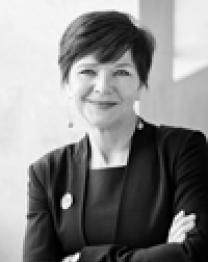
Chantal Line Carpentier joined DITC, UNCTAD after serving as Chief, UNCTAD New York Office of the Secretary-General, since 2014. She brings to the Branch over 25 years of work experience in International Trade, and Environmental and Agro-Economics.
Prior to working with UNCTAD, she supported the Commission on Sustainable Development and served as Major Groups (of non-State actors) Coordinator for the UN Rio+20 Conference and the SDGs negotiations at the United Nations Department of Economic and Social Affairs (UNDESA), and supported the sustainable consumption and production and sustainable agriculture negotiations. As Head of the North American Free Trade Agreement Commission for Environmental Cooperations, she lead work on the nexus of environment, economy, and trade. She also served as Agro-environmental policy analyst for Winrock International, and post-Doctoral fellow/Brazil office manager for the International Food Policy Research Institute.
She obtained a PhD. in Agro-Environmental Economics from Virginia Technology and MSc. and BSc. from McGill University. She has an extensive list of publications on sustainable agriculture, trade and environment, sustainable consumption and production, financing for sustainable development, stakeholder engagement, global value chains, micro, small and medium enterprises, and economic empowerment of women.
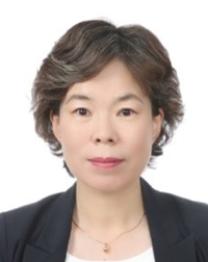
Dr. Eun Kyoung Hwang is a Senior Researcher at the Seaweed Research Institute, National Institute of Fisheries Science, Republic of Korea.
Specializing in seaweed cultivation and breeding, Dr. Hwang focuses on optimizing mass production methods for various seaweed species, including brown, green, and red seaweed. Her research aims to improve cultivation techniques, enhance seaweed quality, and explore commercial applications in food, pharmaceuticals, and bioenergy.
She has significantly contributed to the field through extensive research papers and comprehensive seaweed manual books. She was invited as a keynote speaker at the 24th International Seaweed Symposium (ISS 2023) in Australia and the 8th Congress of the International Society for Applied Phycology (ISAP 2024) in Portugal, highlighting her leadership in the field.
She earned her Ph.D. from Pukyong National University and was a post-doctoral fellow at Queen’s University of Belfast.
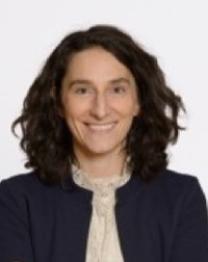
Dr. Laurie C. Hofmann is a marine biologist at the Alfred Wegener Institute Helmholtz Center for Polar and Marine Research (AWI) and a professor of Applied Marine Biology at the Bremerhaven University of Applied Sciences.
Her research interests include innovative uses of macroalgae, growth and optimization of sea vegetables, the development of sustainable macroalgae aquaculture, anthropogenic impacts on macroalgae, and calcification in macroalgae.
She is currently leading the optimization and scaling-up of land-based cultivation of Ulva spp. for the development of food packaging within the EU NOVAFOODIES project.
She is also leading the SeaStrains initiative funded by the Safe Seaweed Coalition (now Global Seaweed Coalition) to develop a European-wide strategy for safeguarding seaweed genetic resources to ensure food security and to protect biodiversity.
Runa Ray is a Fashion Environmentalist and interdisciplinary designer, who uses fashion to educate and advocate for policy change.
Having worked extensively with sustainable development goals at the United Nations, her designs encompass nature based solutions. She specializes in circularity, revival of ancient indigenous techniques, design exploration and re-creation of bio materials from ocean invasive species.
As an educational member of the IUCN and the UN ocean decade, her prime focus lies in advocacy and design intelligence.
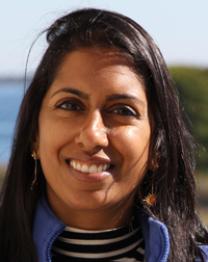
Anoushka Concepcion is currently an Associate Extension Educator focusing on marine aquaculture with the Connecticut Sea Grant Program and UConn’s Department of Extension. Her programming focuses on supporting the seaweed aquaculture sector through collaborations with industry, regulators, and others, to address emerging challenges including seaweed production, processing, food safety, market development and permitting.
Anoushka earned her B.S. in Marine Biology from UNC Wilmington and M.S. in Fisheries, Animal and Veterinary Sciences from the University of Rhode Island. In addition to her role as Chair of the Global Seaweed Coalition’s Strategic Advisory Council, Anoushka leads the US National Seaweed Hub, a multi-state collaborative addressing emerging needs of the domestic seaweed industry.
Beginning in August 2024, Anoushka will transition into her new position as Regional Aquaculture Coordinator for NOAA’s National Marine Fisheries Service, New England and Mid-Atlantic region.
Her 26+ years of experience includes microalgal, shrimp and finfish cultivation.
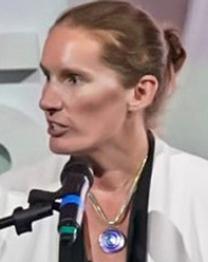
Dr. Valerie Hickey is a Global Director for Environment, Natural Resources and Blue Economy (ENB) at the World Bank.
Prior to that she was a manager for Advisory and Operations in the Climate Change Group, where she oversaw the implementation of the World Bank’s commitments on climate change, climate mainstreaming and climate finance.
And before that the Practice Manager for ENB in Latin America and the Caribbean where she managed a cross-sectoral team that supported countries and communities on issues related to climate change, sustainable forest management, integrated conservation and development, integrated coastal zone management, fisheries, pollution management and environmental health, environmental economics and environmental risk management.
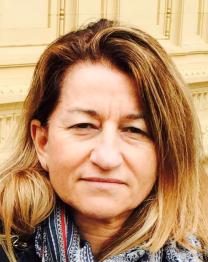
Delilah Al Khudhairy is the Director for Maritime Policy and Blue Economy in the European Commission’s Directorate General for Maritime Affairs and Fisheries, DG MARE.
The Directorate drives forward maritime policy and supports and stimulates the creation of knowledge, innovation and investment to unlock the ocean’s economic potential, while fostering dialogue and cooperation on maritime issues among countries and stakeholders by developing common initiatives in the European sea basins. The Directorate provides open access to reliable marine data and stimulates investment of risk capital in the blue economy. Delilah and her team also lead on EU Aquaculture policy, on the EU Algae initiative, on maritime spatial planning and the Common Market Organisation. Her team also provides socio-economic analyses of the fisheries management and of the sustainable blue economy.
Priorly, Delilah was the Director for Strategy, Work Programme and Resources for several years, followed by a short spell as Director for Competences, at the European Commission’s in-house Science and Knowledge service, the Joint Research Centre.
Delilah graduated with a 1st class honours B.Sc (Eng.) and Ph.D degrees in Materials Science Engineering from London University. She was employed in the research and modelling dept. of British Gas PLC before joining the European Commission in 1990.
Harrison Charo Karisa is Senior Fisheries Specialist (Aquaculture) at the World Bank and a member of the Global Seaweed Coalition Strategic Advisory Council.
Currently engaged in global efforts of the WBG AquaInvest Platform to support governments and private sector in aquaculture development, strengthen livelihoods, and enhance food and nutrition security through climate smart use of land and seascape resources. His work encourages resilient farming practices that enhance biodiversity and ecosystem services and has recently been engaged in global seaweed development fostering knowledge exchange globally.
He holds a PhD in Animal Sciences (Fish Breeding, Genetics and Aquaculture) from Wageningen University of Life Sciences, in the Netherlands and MSc in Biodiversity from Swedish Agricultural University, Sweden.
High-Level Political Forum 2024: Reinforcing the 2030 Agenda and eradicating poverty in times of multiple crises: the effective delivery of sustainable, resilient and innovative solutions (8-17 July 2024)
Related
Topic
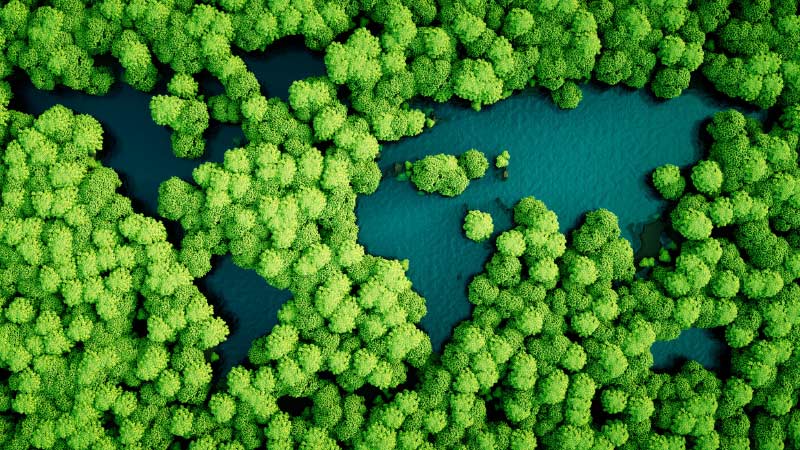 Trade and environment
Trade and environment
Programme
Contact
David Vivas Eugui, david.vivaseugui@unctad.org
Nichola Dyer, nicholajdyer@outlook.com
Harrison Charo Karisa, hkarisa@worldbank.org
Azzedine Badis, azzedine.badis@safeseaweedcoalition.org





